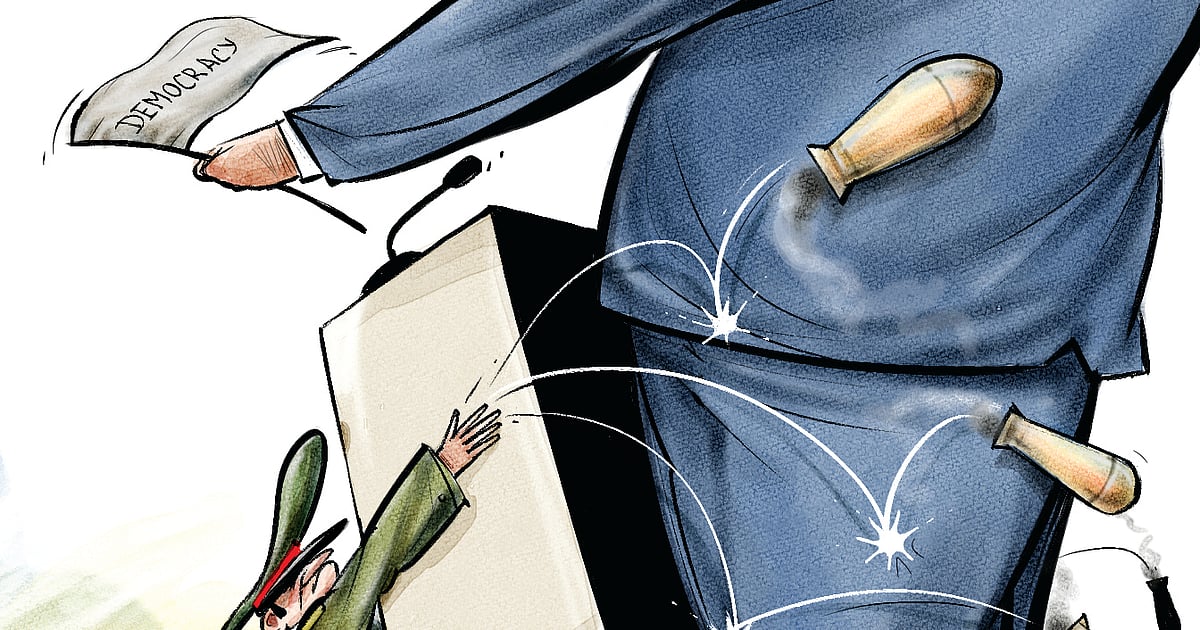The facts are clear—no country can equate Pakistan with India. Pakistan is financially, economically and politically precarious, teetering on the brink of crisis. India’s GDP stands at almost $4 trillion, while Pakistan’s lingers at below $400 billion. India’s foreign exchange reserves are close to $700 billion, compared to Pakistan’s below $15 billion. With wildly fluctuating inflation and a repeated need for IMF bailouts, Pakistan’s economic landscape has been dismal.
Aasim M Husain, a former deputy director at the IMF, in a paper titled ‘Rescuing Pakistan’s Economy’ published this April, wrote, “Pakistan’s economic performance over the past 55 years has been dreary compared with that of its neighbours, in terms of both economic wellbeing and socio-economic attainment. In the early 1970s, the average Pakistani’s income was higher than that of the average Sri Lankan and almost one-and-ahalf times that of the average Bangladeshi or Indian. By 2023, Pakistan’s per capita income had fallen, in relative terms, to only about half of the level in those other three countries.” Noted Pakistani lawyer Faisal Siddiqui wrote in January 2024: “Pakistan is imploding, and its future is not breakup or collapse but more violence and chaos.”
for India. India’s latest defence budget is over $80 billion, whereas Pakistan’s is around $10 billion. With a greater number of troops, military equipment and a much larger fleet, India easily holds the upper hand. The only arena where both countries appear comparable is in their nuclear capabilities, the use of which would result in mutual destruction.
Politically, Pakistan’s façade of democracy is overshadowed by military dominance. Any military confrontation tends to fortify the army’s grip on power, as seen with General Asim Munir’s promotion to field marshal after the recent conflict. A recent Brookings Institution report highlights how various militant groups operate with tacit support from the Pakistan Army, underscoring a dark partnership that challenges regional stability: “The Pakistani military has allowed a welter of militant and terrorist groups to operate largely unimpeded on its soil… the patterns of state cooperation with these groups are strikingly visible.”
I believe we are giving Pakistan undue importance, inadvertently equating ourselves with them. India has nothing to prove on the world stage, especially given the current realities. The international acknowledgement of Pakistan’s struggles and its role in sponsoring terror is already well-established. As we move forward, it is time to recognise our strengths and assert our position without the burden of being seen as inextricably linked to Pakistan.
We should confidently navigate our diplomatic relations, upholding India’s dignity and asserting our place in the global arena without unnecessary comparisons. It is time we realise that India is a flourishing democracy with a bright future ahead, and we have the potential to lead on the world stage. Terrorists cannot hold us back, and we do not need to explain our retaliatory actions to anyone.
K M Chandrasekhar is a former Cabinet Secretary and the author of As Good as My Word: A Memoir
(kmchandrasekhar@gmail.com)
(Views are personal)
